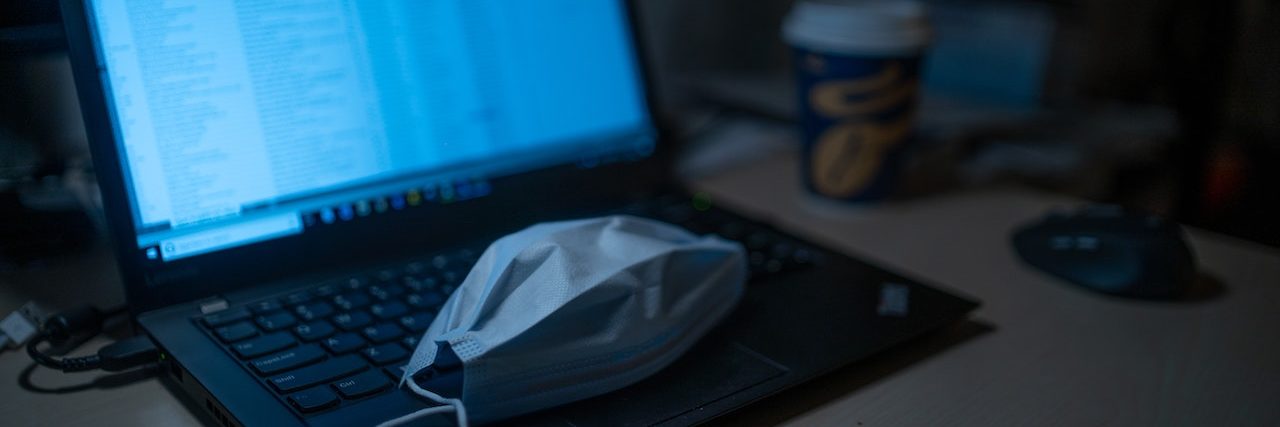What Is the Mortality Rate of COVID-19?
One of the most anxiety-provoking things about COVID-19 is that we have no idea what to expect. As the new coronavirus spreads far and wide at a fast pace, many people will try to find a sense of control by looking at statistics to predict what might happen. If you find yourself Googling, “Will I die from COVID-19?” or losing sleep over the health of your loved ones, know you’re not alone.
Because SARS-CoV-2 is brand new in humans, it will be a long time before we know the true mortality rate — or really understand the virus for that matter. Based on what’s happened in other countries, here’s what experts have discovered about the estimated mortality rate of COVID-19 so far. But remember it’s too early to interpret these numbers as absolute.
What is COVID-19?
COVID-19 is a new form of coronavirus (SARS-CoV-2) that attacks your respiratory system and lungs. Approximately 80% of people experience mild symptoms like fever, cough and shortness of breath and recover on their own. Others, especially those over the age of 65 and those with an underlying medical condition, may have a more severe form of the virus if it reaches their lower lungs and causes pneumonia.
COVID-19 is spread primarily through respiratory droplets, such as when someone coughs or sneezes, that can live on surfaces for up to three days, according to the latest research. The best way to prevent spreading the virus is to practice social distancing, wash your hands often for at least 20 seconds each time and use hand sanitizer when washing your hands isn’t an option.
What is the Mortality Rate of Covid-19?
The true mortality rate of COVID-19 is still unknown, but experts currently estimate it’s between 0.6% to 3%. Based on data from the China Center for Disease Control, where they have been dealing with COVID-19 the longest, those over age 65 have the highest mortality rate while those under the age of 50 have a death rate of less than 1%. Newer research suggested the mortality rate overall is likely closer to 1.4%.
Based on data from the China Center for Disease Control and the World Health Organization (WHO), here’s what an estimated breakdown of mortality rate for COVID-19 by age:
- Ages 0-9: 0%
- Ages 10-39: 0.2%
- Ages 40-49: 0.4%
- Ages 50-59: 1.3%
- Ages 60-69: 3.6%
- Ages 70-79: 8%
- Ages 80+: 14.8%
It’s important not to panic, even if you’re in a group with higher risk, because there are so many factors that can affect mortality. Humans are complicated and so is the environment we live in. We can’t truly predict anything based on these numbers and all of the information we know now about COVID-19 will change in the upcoming months and years.
Why Are There Different COVID-19 Mortality Rates?
There is still uncertainty about the true death rate due to COVID-19. In the middle of an outbreak, researchers may estimate the mortality rate based on the number of confirmed cases by the number of people who died. However, many more people likely have COVID-19 (milder cases that aren’t even tested) than the confirmed cases. Experts will calculate a more accurate rate once they have additional data over time.
In addition, some countries are currently reporting a much higher mortality rate. Italy, where the health care system is overwhelmed with COVID-19 cases, the death rate is much higher than the average, around 6%. Meanwhile, South Korea has a death rate closer to 0.6%, in part due to early widespread testing and isolation. The mortality rate varies depending on the make-up of each country’s population in addition to measures to contain the virus’ spread.
What You Should Know
It’s normal to want to feel some control in the face of the coronavirus outbreak. Sometimes that can manifest as trying to predict the future by trying to determine your risk of dying. The truth is we can’t know for sure and there’s still so much experts have to learn. In the meantime, take preventative measures to protect yourself and others and reach out for support when you need it and know you’re not alone.
“Leaning on friends and family is really helpful when you’re feeling scared or overwhelmed,” wrote Mighty community member Molly Brierley. “You’re not alone. So find your people, people. And if you don’t have any people, I’ll be your people. I love to talk and I have way too much time on my hands these days anyway.”
Header image via Dimitri Karastelev/Unsplash

